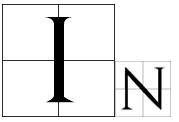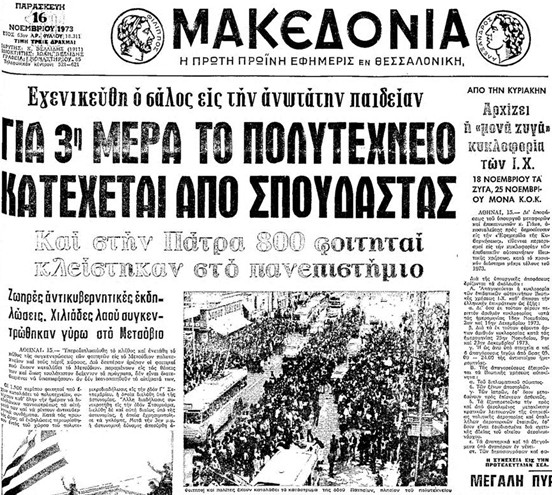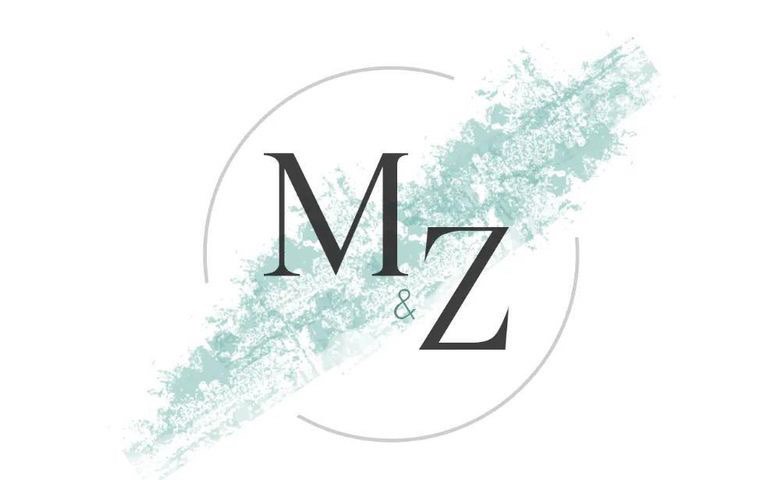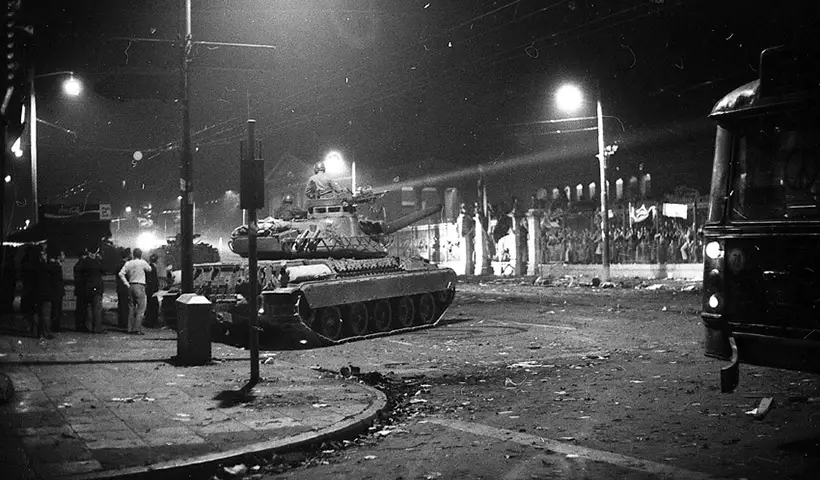 a cold room I walk anxiously up and down, as a mature reflection rushing to my body like blood in my veins. In the serene moonlight of the lamp my cheeks blush, my eyes are wild, and on my fingertips, the black and white, faded photo of my grandfather, Stergios, lies.
a cold room I walk anxiously up and down, as a mature reflection rushing to my body like blood in my veins. In the serene moonlight of the lamp my cheeks blush, my eyes are wild, and on my fingertips, the black and white, faded photo of my grandfather, Stergios, lies.
And suddenly, the hum that was for so long swallowed in the niches of my mind is finally silenced and my thoughts from dull begin to become cleansed. I remember for a moment the story that my grandmother was constantly telling me about Stergios with excess pride and fear and caring emotions running through my body.

He was an old man, loaded with a tragic beard and a fiery look, with a human mind that always stood up for its beliefs and a revolutionary heart. Every dusk he was out to the door, caught lintel, threshold, columns, the whole house was a screen play for his two blue eyes to see the world. He wasn’t a fan of the world, it seemed small and ugly like a piece of torn white paper that no one could write on it, but again maybe only a few. He was disgusted by this old white vacuum. He didn’t like people; they seemed to him too cheap and cowardly like dogs with melted skin so that the bones came out and no longer had a vigor to bark.
The old man each time turned his mustache and palpated the scar of World War II at the ends of his face because he didn’t even want to forget it for a day. To remember all those who fought on his side, killed for freedom, a word as sacred as God Himself! And when he was gazing at the olives, at the pomegranates and the jasmine in the heart of the courtyard he always whispered, “At least then we knew how we would fight. With bullets and rifles” and slowly he was returning onside.
Until a morning with the earth smells of dung, the old soldier has dressed again and held the rusty rifle in his hand. His breath was rough and his eyes were buzzing. “Marika! Marika! “ he was screaming indignant. And the old woman was just as shown at the edge of the kitchen and the old man started to shake the barrel back and forth.
He said, “Marika, my wife, my beauty! Really there in the mountains of Albania, where the bullets were whispered to the silent wind, where the screams of people sounded so melodically like Beethoven’s sonata, do you know beyond death what else did my ill-fated eyes saw? They saw a blond woman with fried eyebrows, with her narrow and half -naked lips, with bruised mummies and wrapped with a thorn wreath standing kneeling in the middle of the war. All around her in the middle of her lived weapons and grenades. The blonde female maritime was Greece, and the woman stood on her knees with her blood running in her children’s bones. And do you know woman who was to blame? “ Now the old man was screaming and tears thick grooved his hard face. “Fascism, the cursed fascism!” said and fell in the wooden chair. The drunken old man spoke again and said, “Woman students are at the Politechnic School and fighting this summer. I have to go to help them Marika listen to me! They don’t know, they are small and innocent! “
But the woman then boldly approached the man and her crystal-clear palm touched his hot cheek. She leaned her head and whispered sweetly, “Calm my love, students are stronger than you think and can save us with the power of Word, they don’t need rifles. Fascism will not pass, calm down.” The day was November 17, 1973.

And while I was palpating his black and white photo and living with my grandfather through my grandfather, my body shuddered and my heart was startled out of fear and awe. And suddenly the door was rubbed and my grandmother’s appearance was showing. A thin line of light was then spilled on my face. My upper lip was glittering from the sweat, my eyes were swollen and my hands were trembling.
“My boy, a police officer stands on the doorstep and asks to see you,” she said with a broken voice.
And at this moment in me deeply sounded a voice so clear as the violence of fascism that he was saying, “You are holding the pen now, you the wild youth!”
In order to understand better the meaning of this article, take a look at some historical facts about November 17, Greece.
The Athens Polytechnic uprising occurred in November 1973 as a massive student demonstration of popular rejection of the Greek military junta of 1967–1974. It began on 14 November 1973, escalated to an open anti-junta revolt, and ended in bloodshed in the early morning of 17 November after a series of events starting with a tank crashing through the gates of the Athens Polytechnic.

We paint and write the art of human emotions, accomplishments, and failures at a social, political, and scientific level. Join us on this journey…





